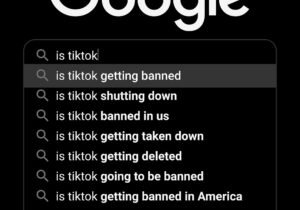Elon Musk’s Department of Government Efficiency (DOGE) has been granted access to the U.S. Treasury’s payment system.
The Unfolding of Events
Elon Musk, appointed by President Donald Trump to lead the Department of Government Efficiency, has been tasked with identifying and eliminating waste within federal operations. A significant aspect of this initiative involved gaining access to the Treasury’s payment infrastructure, a system responsible for processing over $6 trillion in annual federal payments and housing sensitive personal information of millions of Americans. Initial resistance came from David Lebryk, a career Treasury official, who was subsequently placed on leave and later retired. Following this, Treasury Secretary Scott Bessent granted Musk’s team the desired access. – Musk’s team given access to U.S. government payment system, New York Times says
What Elon Musk Treasury Access Means for Everyday Americans
While mainstream coverage has focused on the political dynamics and immediate reactions, several underlying issues warrant attention:
- Data Privacy and SecurityThe Treasury’s payment system contains sensitive data, including Social Security numbers and banking information. The introduction of an external entity, even in a “read-only” capacity, raises questions about data security protocols and the potential risks of unauthorized access or data breaches. How will the government ensure that this data remains protected? – Elon Musk May Have Your Social Security Number.
- Precedent for Private Sector InvolvementMusk’s involvement has set a precedent for private sector figures accessing and potentially influencing federal financial systems. This blurring of lines between private enterprise and government operations could lead to future scenarios where business interests might unduly influence public policy and resource allocation. What safeguards are in place to prevent conflicts of interest?
- Impact on Public TrustPublic confidence in governmental institutions is paramount. The perception of a private individual wielding significant influence over federal payment systems might erode trust, especially if decisions appear to favor certain groups or lack transparency. How will the administration address potential public skepticism?
The Reasoning Behind the Move
Proponents argue that Musk’s record of innovation and efficiency could bring much-needed reform to the outdated government systems. The federal payment infrastructure, with its vast scale, may benefit from modern technological insights, potentially leading to cost savings and enhanced operational efficiency. Musk’s team aims to identify inefficiencies and propose solutions that could streamline processes, reduce waste, and ensure taxpayer money is utilized effectively.
This also comes after the recent USAID freeze, where foreign aid was suspended for a 90-day period as per Executive Order 14169, titled “Reevaluating and Realigning United States Foreign Aid,” which initiated a 90-day suspension of all U.S. foreign development assistance programs to conduct a comprehensive review. This pause, announced on January 20, 2025, was later followed by the U.S. State Department’s directive on January 24 to halt all existing foreign aid programs, with limited exceptions for emergency food assistance and military aid to Egypt and Israel.
Voices of Concern
Critics, however, highlight several apprehensions:
- Potential for OverreachThe extent of DOGE’s access and the authority it wields remain ambiguous. There is concern that this could lead to overreach, where decisions traditionally made by elected officials or career civil servants are influenced by private entities. This could disrupt established checks and balances within the government.
- Accountability MechanismsWith Musk’s team operating within federal systems, questions arise about accountability. If errors occur or if sensitive information is mishandled, who bears responsibility? The integration of private individuals into public systems necessitates clear accountability frameworks to address potential issues.
The Role of Private Innovation in Public Systems
Across different platforms, DOGE’s access to the government payment system has started discussions about the role of private innovation in public systems. While collaboration between the government and private innovators can lead to advancements, it is crucial to maintain clear boundaries to preserve the integrity of public institutions. The challenge lies in leveraging private sector expertise without compromising public interest or security.
Elon Musk’s access to the U.S. Treasury’s payment system, while with potential benefits of increased efficiency and modernization also makes it imperative to address deeper concerns related to data security, public trust, and the preservation of democratic processes.
With DOGE’s new access to the U.S. Treasury, Elon Musk aims to cut government waste—but is your data at risk?




